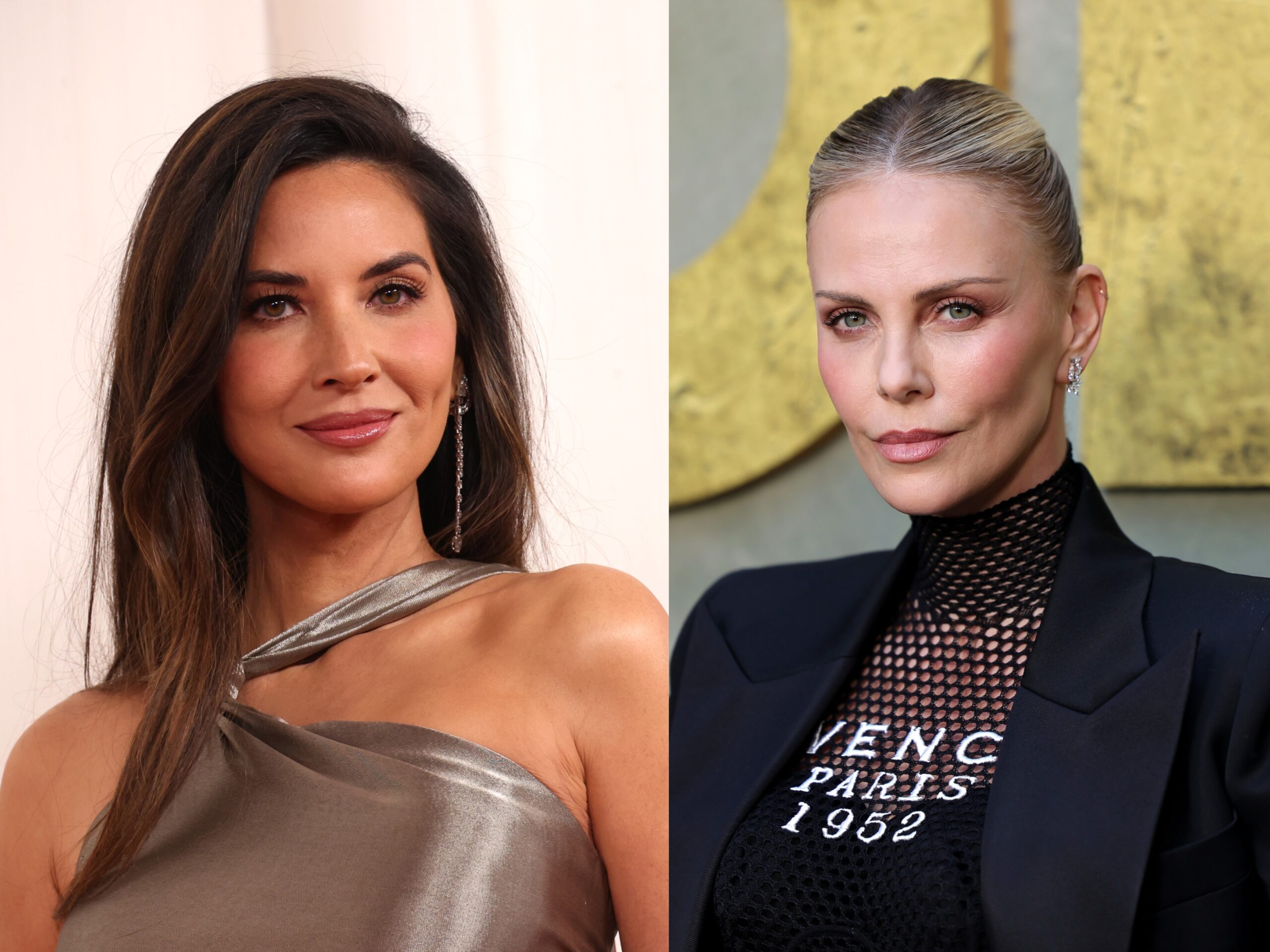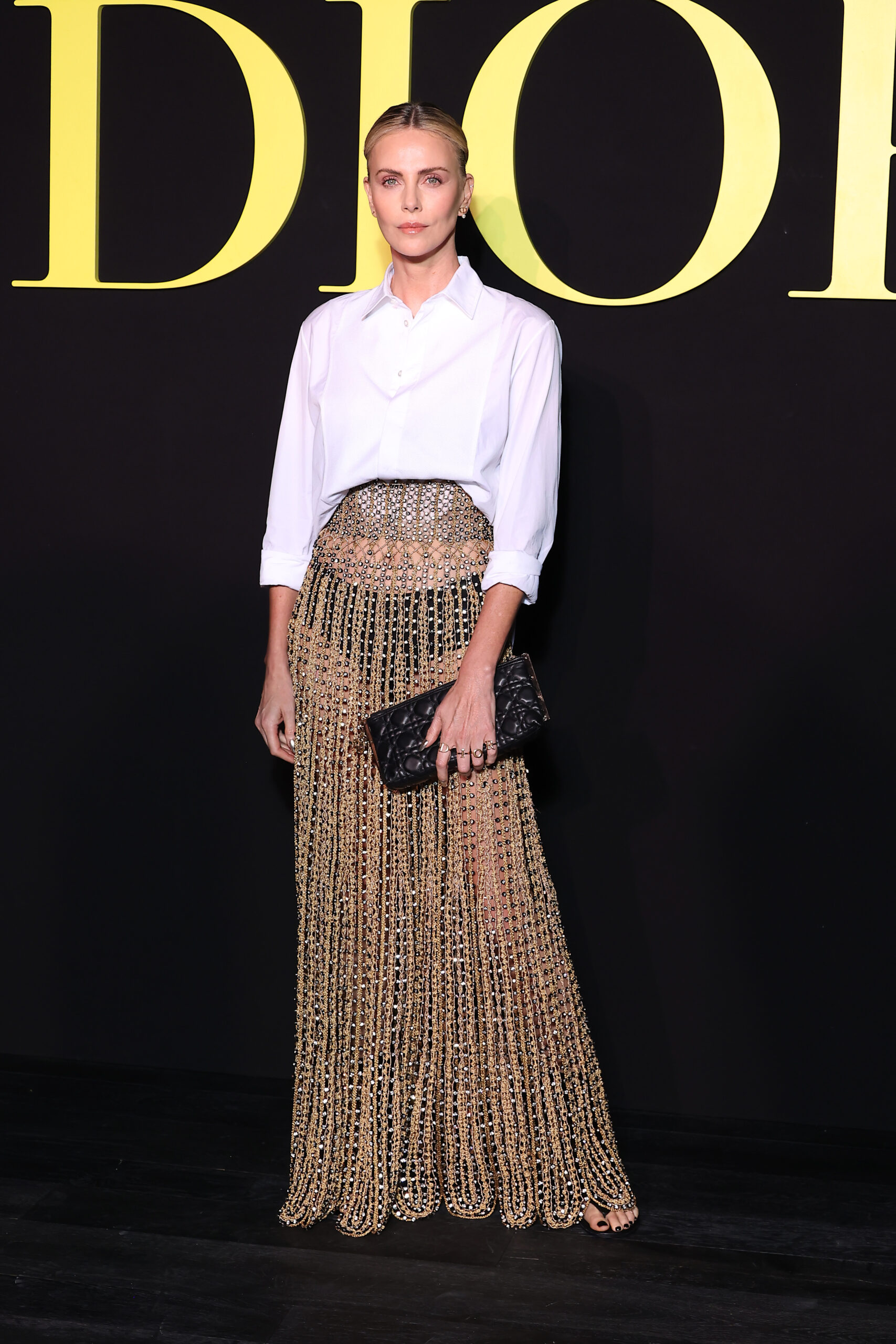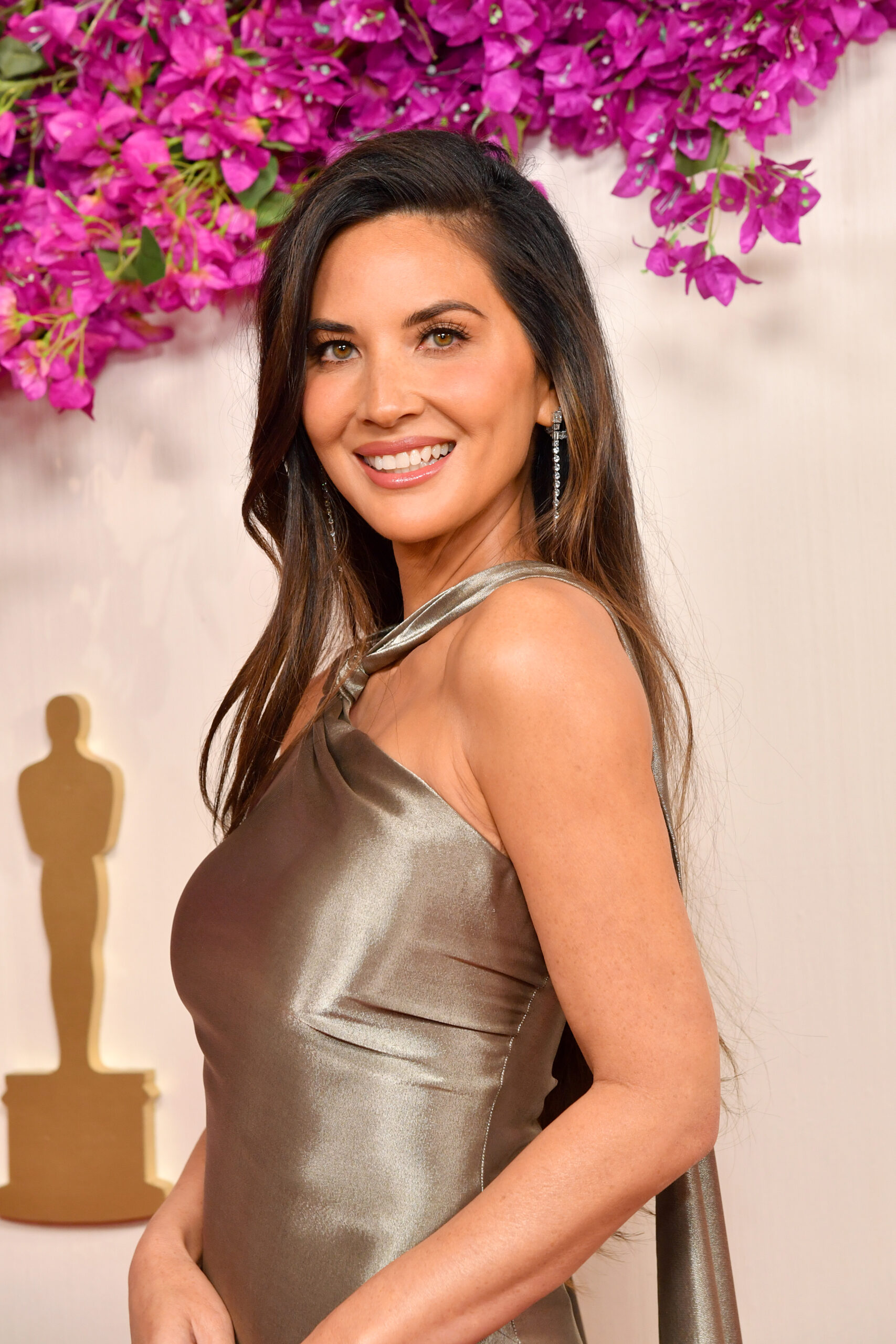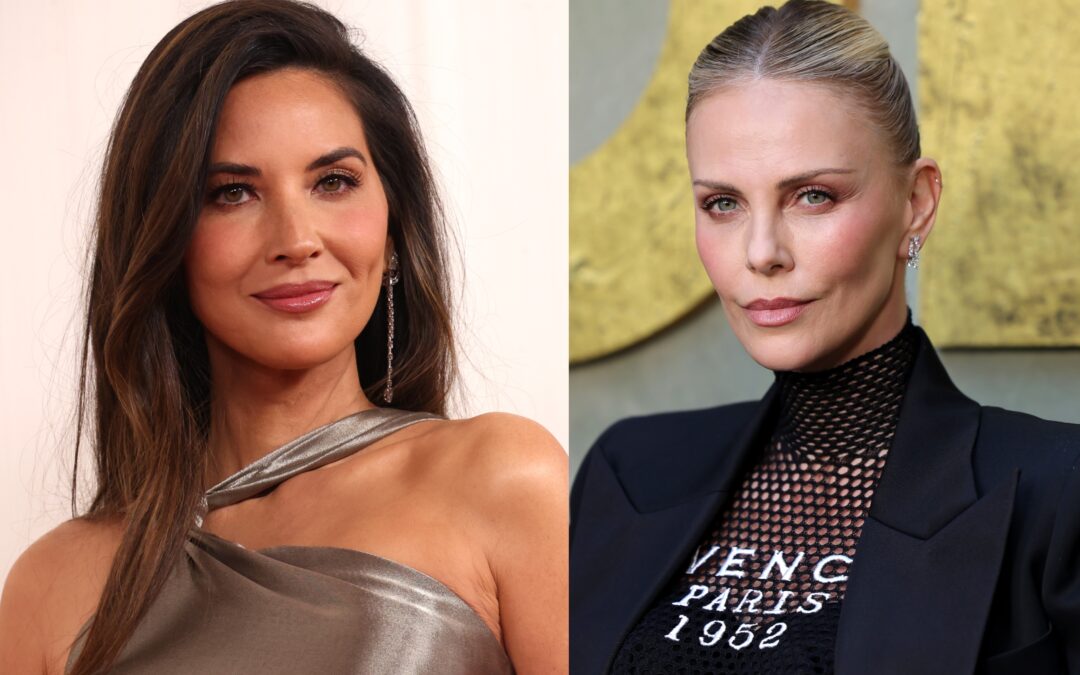Why more actors are calling out Hollywood directors bad behaviour
Both Olivia Munn and Charlize Theron have opened up about dealing with problematic men in power.
Words by Charley Ross

An increasing number of actors – including Olivia Munn and Charlize Theron – are coming forward to call out toxic behaviour from Hollywood directors on set. Back in 2019 during an interview on the Howard Stern Show, Theron stated that a director she had worked with invited her for an audition at his house late at night, opened the door in his pyjamas and put his hand on her knee at one point. It was her first audition, and very early in her career.
‘The little voice inside me definitely said, “This isn’t right,” she recalled.’But then the other voice in me says, “Well, I don’t know. Maybe it is right.”‘ She reopened the conversation about what happened to her on the Call Me Daddy podcast, in conversation with host Alex Cooper.
‘This guy, he got a little nervous for a while there. I’ve never said his name because honestly, I don’t want the story to be about him. It’s not because I’m protecting him or anything, but he got nervous for a little bit,’ she said. ‘Because he heard me tell the story, and he knew it was about him, and he wrote me a pretend letter trying to explain his behavior and how I must have misunderstood it, which is classic, isn’t it?’

‘And I just realised, like, I won’t even fucking say your name because you know you’re the scumbag,’ she said. ‘You know it’s you, and if anybody ever asked me about him, I would be completely honest. And he knows that. And I kind of like that he’s got to be on a hot seat. He doesn’t know when it’s going to come. I kind of like that a little more.’
Theron added that she was ‘furious’ with herself that she let herself ‘down’ and the shame that came with that. ‘I was like, “Who the f**k are you? Why the f**k would you allow that? Why?”’ she recalled.
‘I still get those feelings, because it’s you know yourself so well and there’s something that really kind of like breaks my heart to the core when people in this very luxurious manner talk about “Well, you know what, next time you should fucking say something. Like, don’t wait 20 years.” This kind of like callous way of not wanting to believe. That’s really what it boils down to.’
She described victims being asked why they didn’t come forward sooner as like being called ‘a f**king pussy.’ Heartbreakingly, Theron also said that she didn’t care what anyone else says about her experience because nobody could inflict more pain on her than the ‘hurt’ she did to herself over what happened.
‘i put a lot of blame on myself.’
‘I think that we need to tell these stories so that we can understand that we’re not alone,’ she told Cooper, who also recently accused her former university football coach of sexual harassment in her docuseries Call Her Alex. ‘I put a lot of blame on myself … that I didn’t say all the right things, and that I didn’t tell him to take a hike, and that I didn’t do all of those things that we so want to believe we’ll do in those situations.’
Theron has added that her experiences dealing with the director since hasn’t given her the closure she needed. She recalled seeing a chance to remedy the situation when he offered her another acting role.
She agreed to a meeting ‘because I thought I had the opportunity [to confront him], I was going to have the moment I didn’t have with him’. However, he didn’t offer any apology or explanation, as he ‘didn’t want to address it’.
‘At that moment, it was clear to me that it wasn’t his first time and that he had been doing this before and that other women had called him out. His way of handling it was just to talk over it and about the project.
‘Unfortunately, it was not the moment I so wanted,’ Theron said. ‘That is the unfortunate thing about sexual harassment. You never get that moment where you feel like the tables are reversed and now he’s finally getting it.’
She added that she ‘actually did disclose [the director’s] name’ in an interview but that ‘the journalist made the decision to not write his name.’
Her story emphasises the true complexities for victims when they speak out against their abusers, the ways in which structures of power can work against victims, and can end up in making their own life worse. So it’s really not as simple as naming and shaming your abuser.
Olivia Munn has also recently opened up on Dax Shepard’s Armchair Expert podcast about her own problematic experiences with one of many directors of The Newsroom, also choosing not to name the director in question. She described the ways that he undermined her by pressuring her to only focus on her character’s onscreen romance over other plot lines.
‘I just fought back so much,’ she said. “It got to this place where there was one scene, and I was like, “No. I’m not doing [that].” And he said, “Look, it’s my job as a director to see all the different colours of the rainbow and you are looking at only one colour, and I don’t think you realise how you’re coming off.” And I said, “How am I coming off?” And he said, “Really forceful and strong.” And I said, “Great. That’s what I wanted.” And I walked away.’
Her issues with the unnamed director followed her from the project they worked together on to a new project, where he told the people in charge she was ‘combative’. She was “on the one-yard line” for a film role when she got a call from her manager, who said ‘Hey, you’re gonna get the role. But first, I guess there’s another director who they know and he says that on The Newsroom, you were late all the time and really combative.’
‘He just was trying to bash me,’ she said of the director in question. ‘I still got the role. But I will always remember that, just because of our conflicts of how we approached a role, he wanted to ruin my chances of getting anything else.’

In the face of so many #MeToo stories exposing the identity of victims’ abusers, it has perhaps become normalised to name and shame. But we need to take a step back and consider this move is more complicated than it sounds. Vulnerable victims risk their own reputation and safety in some cases.
The very same existing power dynamic that makes it easy for powerful men (directors, in this case) to act this way also ensures victims find it difficult to speak out without their own careers, lives and reputations being affected as well as their abusers’. Unfortunately, without a name to pin the blame on and request justice from this leads to speculation. And this can hurt victims even more, with their story splashed over the media but misinterpreted and exaggerated.
The decision to not disclose the identity of problematic characters in Hollywood isn’t limited to women in the industry, either. Jason Isaacs recently opened up about ‘bad behaviour’ on set in an interview with Vulture, divulging that he once got pushed out of a shot by a prominent actor.
‘Oh Jesus. Did worse than that. Was the worst bully ever and a global icon,’ Isaacs said. He continued. ‘Did all the old tricks of doing a completely different performance off-camera than on…Yeah, it sucked. I’d never seen anything like it. Before, I would’ve licked the ground that this person walked on.’
Isaacs’ comments were focused on other actors’ bad behaviour, which included ‘selfishness, cruelty, bullying, or people complaining to the person who’s getting them dressed, who doesn’t get in a year what they earn in a day to pick their filthy underwear off the floor’.
‘That, or not turning up, or going home early, or thinking they know better than the director, or being on crack and calling prostitutes to their trailer. I come across all that stuff.’
When asked why he wouldn’t name and shame, Isaacs responded that he only could if he ‘won the lottery’, suggesting he’d lose out on roles and money if he did. ‘I’m not so stupid as to even give hints or clues about who those people are,’ he said.
The fact that a white, middle-aged man with power and experience in many huge titles such as Harry Potter and The White Lotus – as well as talented women such as Munn and Theron – still don’t feel comfortable naming a difficult dynamic or person proves that Hollywood still has an abuse problem – in that victims and witnesses are still being punished for speaking out.
Photos: Getty

